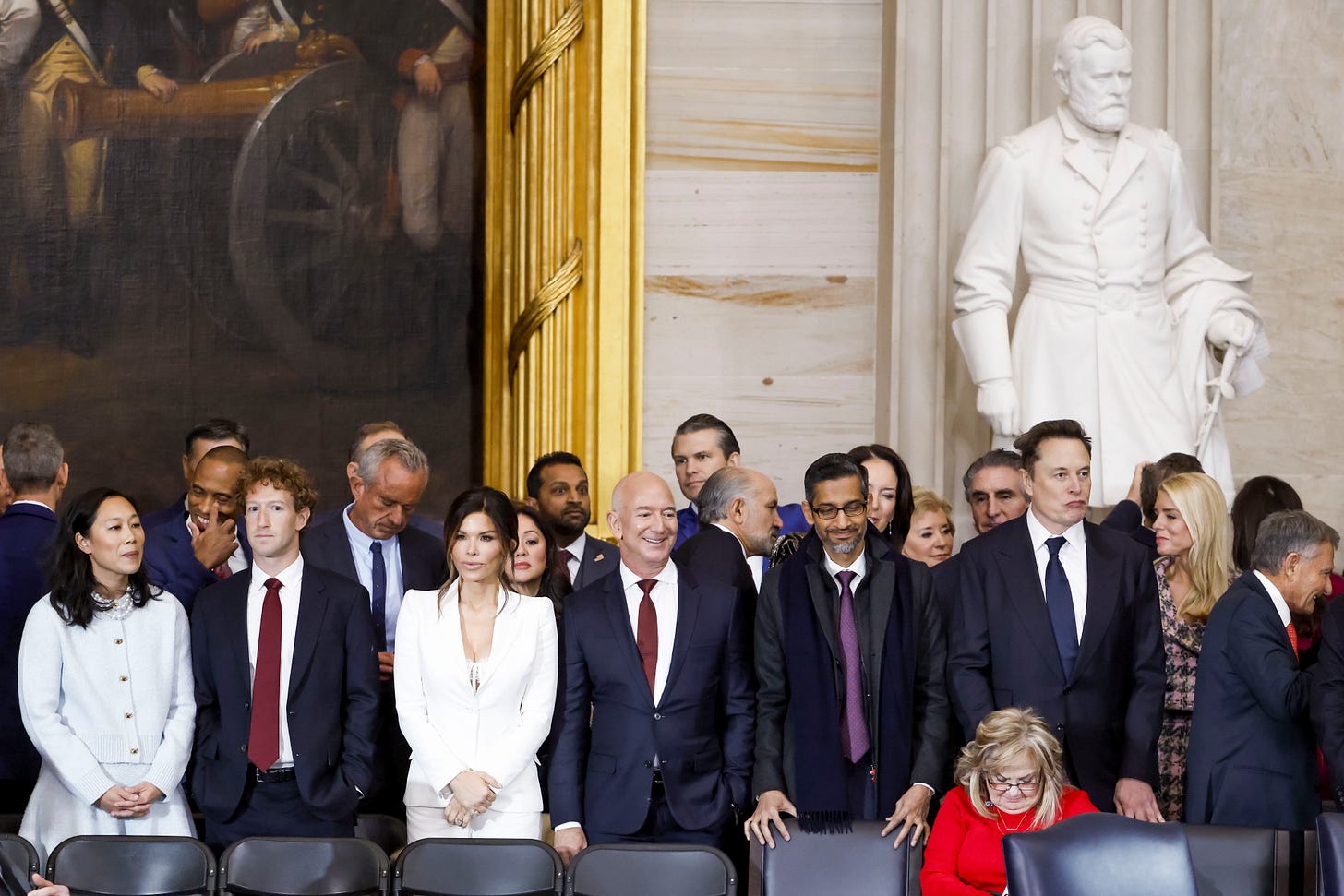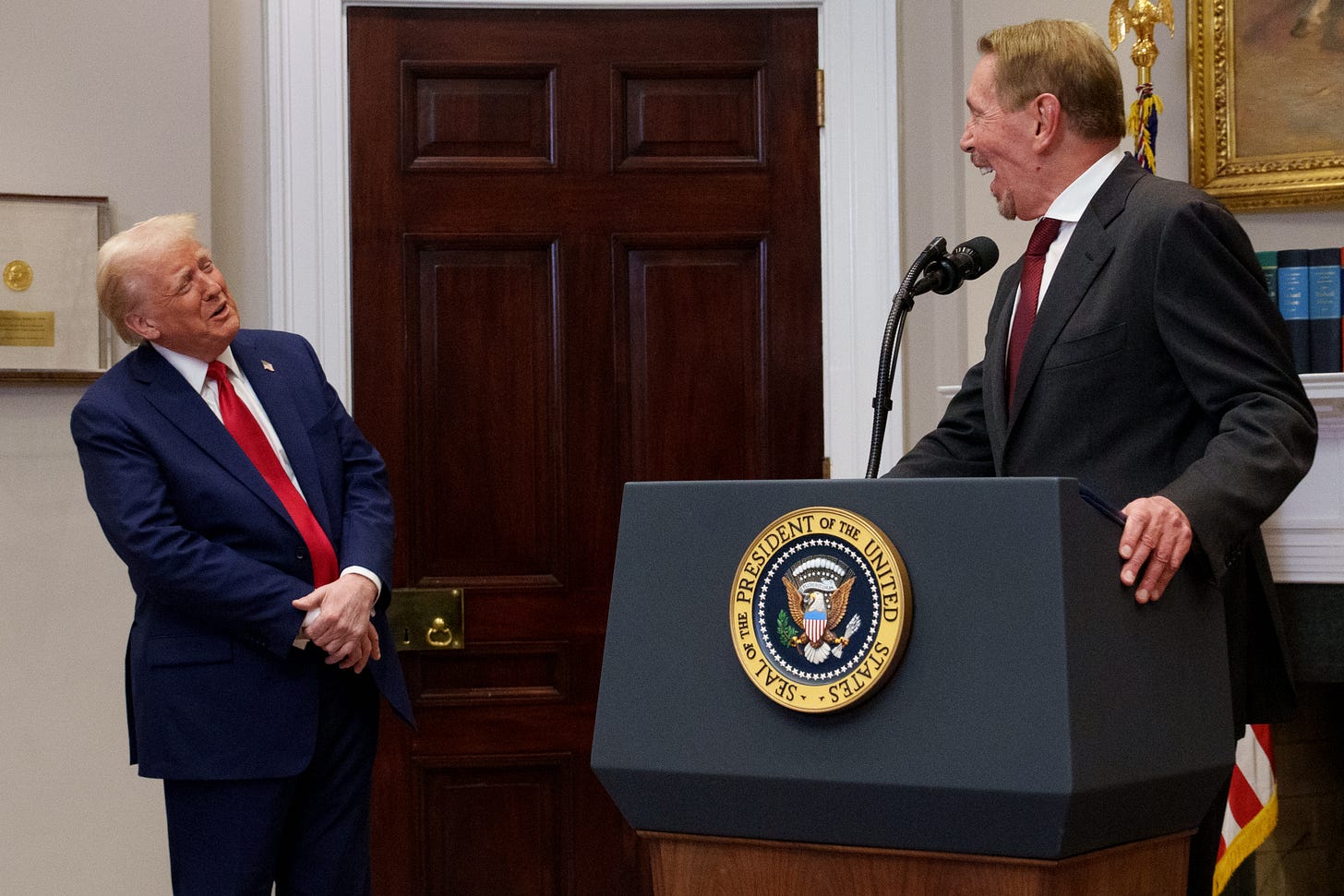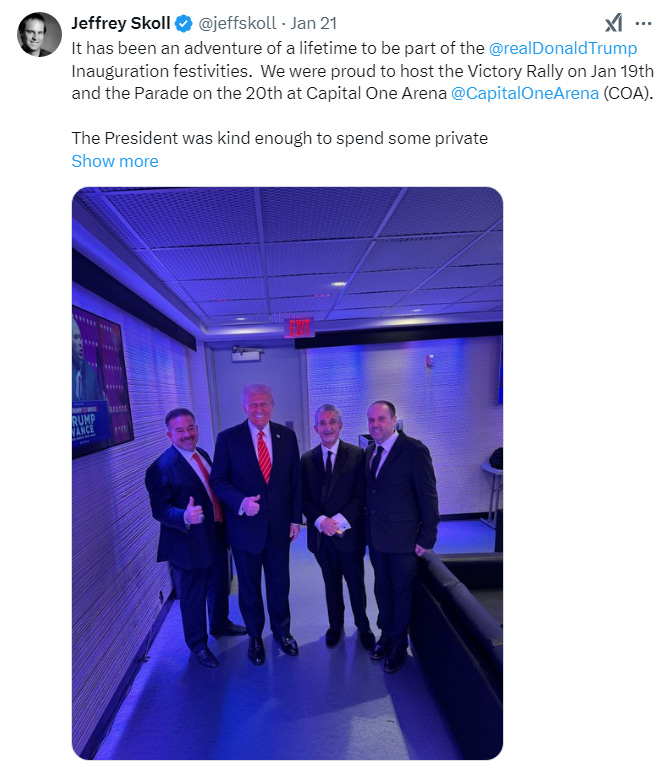Docs Under MAGA: Stranded, Abandoned & Hollywood 'Kryptonite'
Alex Gibney on 'no appetite [to] offend', buyers ghosting Oscar shortlist films, Amazon's $40M Melania check and CEOs' fear

Nicole LaPorte is an Ankler contributor. Her previous features include a look at the resurgence of the spec script market, how WFH is killing Hollywood and how Hollywood DEI is now D-I-E.
This Ankler Feature is a 19-minute read.
When documentarians and doc lovers alike gathered in Park City, Utah, a year ago for the Sundance Film Festival, Joe Biden was embarking on a too-close-to-call race for the White House, Participant Media was an active buyer — it picked up three titles at the fest — and Netflix acquired the ambitious documentary Power, a blistering indictment of the American police state, even before it premiered at Sundance.
On the eve of Sundance 2025, the whiplash effect is here. For documentary filmmakers whose work explores political subject matter, sure, Sundance might offer a prize and even put a film into the awards conversation. After all, 10 of the 15 documentary shortlist films in contention for an Oscar nomination screened here last year. But neither Sundance nor any festival can now guarantee what every political filmmaker really wants: a buyer and distribution.
The MAGA-sphere that ushered Donald Trump back to the Oval Office could already be seen in the doc market last year — even before he won. Three political films from 2024 on the Oscar doc shortlist have yet to be picked up for distribution by a studio or streamer:
The Bibi Files, an expose of the corruption charges against Israeli Prime Minister Benjamin Netanyahu, directed by Alexis Bloom
No Other Land, about efforts by the Israeli government to demolish Palestinian homes in the West Bank to make way for settlements that had resulted in U.S. sanctions (Trump lifted those sanctions on day one)
Union, a cinema vérité look at the first successful unionization effort of an Amazon fulfillment center
“There is less and less of an appetite to distribute films that might offend some people,” says Alex Gibney, the Oscar-winning documentarian and a producer of The Bibi Files.
If doc makers had any hopes for a return to the resistance boom times of the first Trump administration — when the likes of RBG and Knock Down the House were hot properties — one need look no further than the inauguration on Jan. 20 to see just how little interest corporate behemoths are likely to have in any documentaries that challenge the new status quo or risk offending President Trump. There was not only Amazon founder and chairman Jeff Bezos and Apple CEO Tim Cook but also the CEOs of the two platforms docs rely on to promote their work — Meta’s Mark Zuckerberg and Google’s Sundar Pichai — all sitting behind the 47th President after donating millions to his inauguration committee.

“Streamers are associated with big businesses, be they retail or tech devices, and they don’t want to offend potential customers,” says Gibney, who directed Going Clear: Scientology and the Prison of Belief. “Bibi Files, four to five years ago, would have been snapped up and I think would have done very, very well.”
Today, the kind of political documentary project subject to bidding wars is one that’d be laughed off Main Street Park City. “Forty million for a Melania Trump doc? Really?” says Gibney. He’s referring, of course, to Amazon having just spent $40 million on a documentary about the First Lady, directed by the suddenly un-canceled Brett Ratner. Worse, Amazon won the rights by besting Disney, fresh off caving on its lawsuit with Trump over George Stephanopoulos’ alleged defamation, and Paramount, currently trying to get the Trump administration to approve its acquisition by Skydance. That deal, of course, is backed by Trump megadonor Larry Ellison, who appeared at the White House on Jan. 21 where he and the President made goo-goo eyes at each other.

No wonder then that the purchase has been called “payola” by Democratic political strategist James Carville, and widely interpreted as a sign that Amazon, like many other tech companies, is genuflecting before the incoming President.
“And she’s the executive producer?” Gibney continues, incredulously. “I guess that’ll be the future: The First Lady of whatever administration comes into office and [companies say], ‘Let’s make sure we get on the President’s good side.’”
But as one documentary filmmaker tells me: “Love it or hate it, that film is going to be a big hit.”
Et Tu, Jeff?
This despairing comes as the doc community is still reeling from Covid largely killing the theatrical market for their films and streamers having snapped their pocketbooks shut after a period of frothy overspending. Participant, which won four best documentary Oscars in 20 years, closed up shop last April; imagine the shock for the community then when Participant founder Jeff Skoll, who financed Al Gore’s An Inconvenient Truth, revealed even his own MAGA turn:
As an agent tells me, any documentary “that whiffs of progressive wokeness, for lack of a better term, is kryptonite right now.”
Yet despite all of the political and cultural headwinds, filmmakers are getting creative in trying to get their projects seen. I talked to Gibney, Joe Berlinger (Brother’s Keeper, Paradise Lost) and Matt Tyrnauer (The Reagans, Where’s My Roy Cohn?), Toronto International Film Festival programmer Thom Powers, Union producer Samantha Curley, agent turned producer Kevin Iwashina (Jiro Dreams of Sushi), agents and nearly a dozen others to find out what exactly is going on — and it’s not pretty (but also not entirely hopeless).
My interviews paint a picture of Big Tech’s influence to make political docs “invisible” not just in terms of buying but also promotion, but also how to bypass traditional distribution to make sure important films are still seen — and why the shifts may not entirely be about politics at Netflix, Amazon and Apple. My interview subjects also offer solutions that start to answer the question of, as Iwashina puts it, “How do we assemble ourselves and support one another in creating a more positive environment for everyone?”
Big Tech’s ‘Free Speech’ Platform
No one involved with Union, directed by Stephen Maing and Brett Story, thought that Amazon would be a buyer for a film featuring its own employees “working in the most insidious and harshest working environments,” as Maing said at The Ankler x Pure Nonfiction Documentary Spotlight earlier this month. “Amazon is considered more dangerous than logging and law enforcement.”
But what the filmmakers hadn’t anticipated was Amazon’s influence within the industry. “There were other (buyers) who wouldn’t touch it because it was about Amazon,” says Samantha Curley, one of Union’s producers and cofounder of Level Ground Productions, which focuses on socio-political stories. “We heard from sales agents and some other friends inside companies who said they just do too much business with Amazon to jeopardize” that relationship.
But, Curley believes, there’s more to it. A lot.
This feature is for paid subscribers only. Interested in a group sub for your team or company? Click here.
For full access and to continue reading all Ankler content, paid subscribers can click here.




Get article.